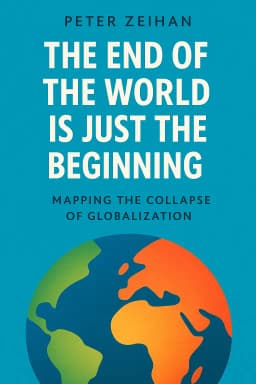Economics & Money

Politics
Aristotle
Explore Aristotle's timeless insights into the nature of the state, governance, and the pursuit of the highest good. This foundational work delves into the elements of a state, the roles of citizens, and the various forms of rule, offering a profound understanding of political society.

The Prince
Niccolò Machiavelli
A treatise on political philosophy, exploring the acquisition and maintenance of power. Machiavelli examines the qualities a prince must possess to govern effectively, often challenging conventional morality in favor of pragmatism. A timeless exploration of leadership, strategy, and the realities of power.

Animal Farm
George Orwell
A compelling satire set on a farm where animals revolt against their human owner, only to establish a new, more oppressive tyranny amongst themselves. A chilling allegory of power, corruption, and the betrayal of revolutionary ideals.

The Road to Serfdom
Friedrich A. Hayek
The Road to Serfdom by Friedrich A. Hayek is a landmark work in political and economic thought that warns about the risks of central economic planning and its impact on individual freedom. Written during World War II and first published in 1944, Hayek argues that well-intentioned efforts to organize an economy through government control can unintentionally strip away personal liberties and pave the way for authoritarian rule. Hayek traces how socialist and collectivist policies—promoted as paths to equality and security—can require ever-greater state intervention, erode democratic institutions, and concentrate power in the hands of a few. He draws connections between centralized planning and the rise of totalitarian regimes, while contrasting this with the benefits of individual choice and market-based coordination. The Road to Serfdom remains a foundational text in classical liberal and free-market thought, influential across economics, political philosophy, and public policy debates about the balance between government action and personal liberty.

Destined for War
Graham Allison
Is the U.S. and China headed for war? This book explores the historical pattern of when a rising power threatens to displace a ruling power, and the potential for conflict between the two nations. It examines the causes and consequences of such conflicts, and proposes strategies for avoiding war.

The End of the World Is Just the Beginning
Peter Zeihan
"The End of the World Is Just the Beginning" is a sobering and provocative geopolitical forecast by strategist Peter Zeihan. The book challenges the assumption that the peace and prosperity of the last 70 years were the result of natural progress. Zeihan argues they were an artificial anomaly created by the American Order (the Bretton Woods system), where the US Navy guaranteed safe global trade to bribe allies against the Soviets. Now, the US is withdrawing, and globalization is collapsing. Zeihan combines geography and demographics to predict a grim future. He highlights a catastrophic demographic collapse: most of the developed world (and China) is aging out of the workforce, meaning the era of cheap labor and mass consumption is over. As the Americans pull back and populations shrink, global supply chains will shatter. The world will fragment into regional silos where countries must secure their own food and energy or face collapse. Zeihan predicts a return to a harsher, pre-industrial reality for many, arguing that while the US will survive due to its geography and resources, nations dependent on global trade face an existential crisis.

Unfreedom of the Press
Mark R. Levin
Unfreedom of the Press is an exposé on how the modern media is destroying freedom of the press from within. It argues that social activism, progressive groupthink, and Democratic Party partisanship have replaced objective fact-gathering and news reporting, leading to a crisis of credibility for the mass media.

Commander in Cheat
Rick Reilly
A scathing and hilarious exposé of Donald Trump's golfing habits and how they reflect his approach to the presidency. From cheating on the course to exaggerating his accomplishments, this book uncovers the truth behind Trump's golf game and what it reveals about his character.